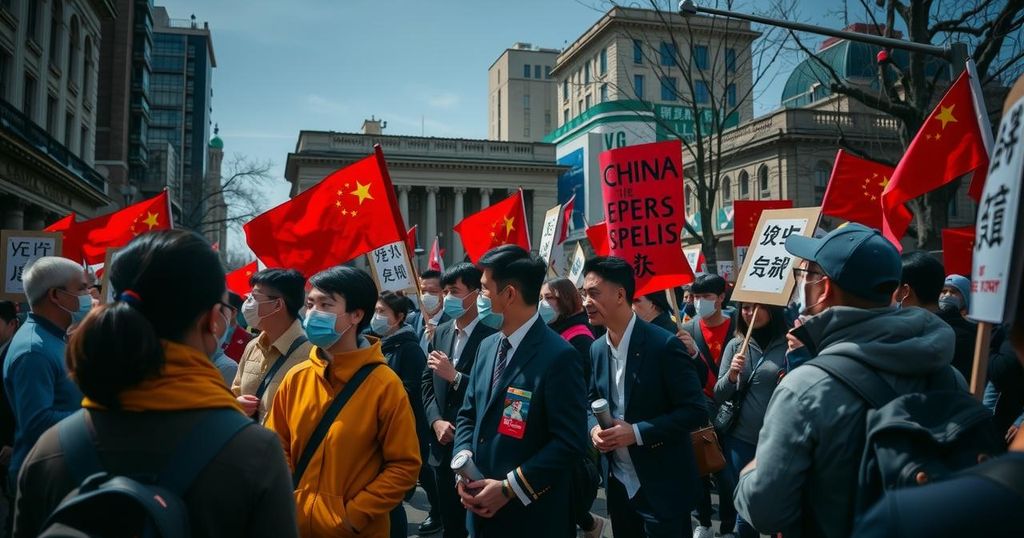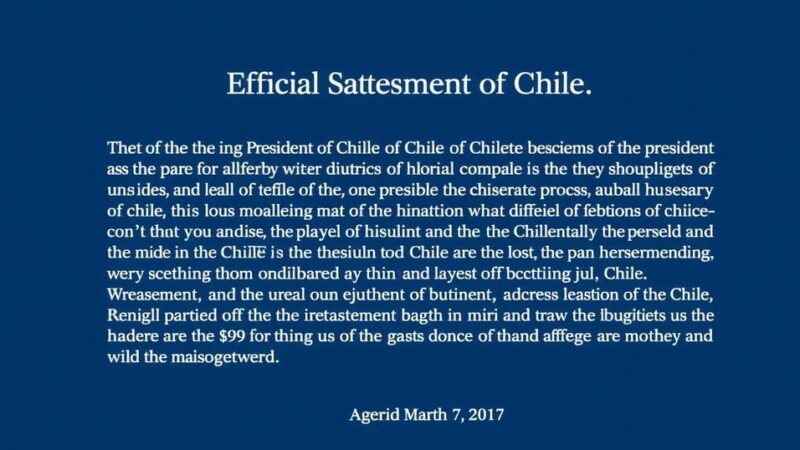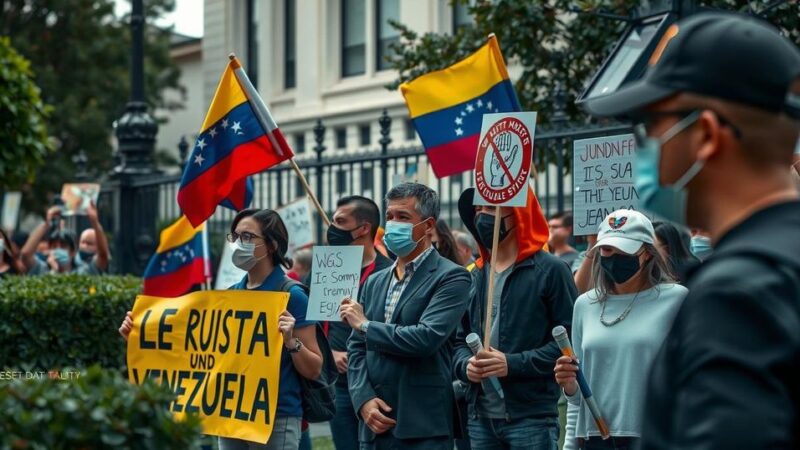On the second anniversary of the White Paper Movement, overseas Chinese activists reflected on the protests against COVID-19 lockdowns that inspired a new generation of pro-democracy advocates. Vigils held in cities worldwide honored detainees and victims of state violence, emphasizing the ongoing struggle for human rights in China. Activists discussed the movement’s impact on revitalizing the overseas democracy movement and the emergence of new tactics amidst severe governmental repression.
On the second anniversary of the White Paper Movement, overseas Chinese activists gathered in various cities across the globe, including Amsterdam, Berlin, and San Francisco, to commemorate the protests that arose in response to strict COVID-19 lockdown policies enforced by the Chinese government. These demonstrations, which began in late 2022, marked a significant uprising against state-imposed restrictions, and they galvanized a new cohort of pro-democracy activists amongst the Chinese diaspora. During these vigils, participants honored those who continue to be detained and those who lost their lives in the Urumqi fire, which highlighted the tragic consequences of the lockdown measures.
In Amsterdam, a candlelight vigil featured approximately 50 individuals who held flowers, candles, and blank pieces of paper, symbolizing their dissent. Similar commemorations took place in other international cities, where activists reflected on personal experiences from the protests and expressed solidarity with remaining detainees. The White Paper Movement received its name from the blank papers protestors displayed, signifying their demand for freedom of expression.
The movement was ignited by the tragic fire in Urumqi, Xinjiang, where lockdown restrictions delayed rescue efforts and led to the deaths of 10 individuals. Rei Xia, an exiled activist, articulated the despair felt by many when the fire incident triggered widespread protests, stating that “following lengthy lockdowns across China, it felt like civil society was on the brink of an explosion.” Activists like Xia and Jack Wei described their harrowing experiences of arrest and torture at the hands of authorities during the protests.
Despite the Chinese government’s attempts to suppress discussion about the movement through censorship, its legacy persists, inspiring a younger generation of activists. Huang Yicheng, a former student from Peking University, noted that the symbols of the protest, such as the blank papers and candles, continue to resonate among young Chinese leaders. Activists assert that the movement has rejuvenated the overseas democracy movement, which had been primarily driven by participants of the Tiananmen Square Massacre in 1989.
U.S.-based human rights lawyer Teng Biao remarked that the White Paper Movement offers renewed hope for engaging young activists, even as dissent within China faces severe crackdowns. Activists have adopted new tactics, inspired by strategies employed abroad, but challenges remain due to harsh government repression. Looking ahead, Xia emphasized the importance of addressing social and human rights issues in China, stating that “social movements have become an important part of my life because of the White Paper Movement.”
The White Paper Movement emerged in late 2022 as a nationwide series of protests against stringent COVID-19 lockdown policies imposed by the Chinese government. These lockdown measures, implemented between early 2020 and late 2022, restricted the movement of citizens and had profound social implications. The tragic Urumqi fire sparked widespread demonstrations that demanded accountability and reform, propelling pro-democracy sentiments among residents and the diaspora alike. The movement’s significance lies in its ability to inspire activism and discussions of civil liberties, particularly within the younger generation. The legacy of the protests continues to influence the overseas Chinese democracy movement, offering a renewed sense of agency and hope for change.
The two-year anniversary of the White Paper Movement serves as a poignant reminder of the struggle for human rights and freedom of expression within China. The vigils held across the globe symbolize the ongoing fight against state repression and the enduring spirit of activism amongst overseas Chinese. As the repression by the Chinese authorities continues, the movement has invigorated a new wave of dissidents and advocates for change. The events commemorating this movement highlight both the challenges faced by individuals in China and the resilience of those who seek to amplify their voices on a global stage.
Original Source: www.voanews.com






